Steps 1:
<a href="{{ url('/generate-keys') }}" class="btn btn-primary">Generate Keys</a>
Steps 2:
Route::get('/generate-keys', function () {
$privateKey = openssl_pkey_new();
openssl_pkey_export($privateKey, $privateKeyString);
$publicKey = openssl_pkey_get_details($privateKey);
$publicKeyString = $publicKey['key'];
$filename = 'my_keys.txt';
$handle = fopen($filename, 'w');
fwrite($handle, $privateKeyString . PHP_EOL . $publicKeyString);
fclose($handle);
return response()->download($filename);
});
=============================OR============================
ANOTHER METHOD
use Illuminate\Http\Request;
use Illuminate\Support\Facades\Crypt;
// Generate a new public/private key pair
$keyPair = openssl_pkey_new([
"digest_alg" => "sha256",
"private_key_bits" => 2048,
"private_key_type" => OPENSSL_KEYTYPE_RSA,
]);
// Get the private key
openssl_pkey_export($keyPair, $privateKey);
// Get the public key
$keyDetails = openssl_pkey_get_details($keyPair);
$publicKey = $keyDetails["key"];
// Store the keys in the session for later use
session()->put("privateKey", $privateKey);
session()->put("publicKey", $publicKey);
// Display the public key for the user to copy and paste
echo "<pre>" . $publicKey . "</pre>";
ANOTHER METHOD
use Illuminate\Http\Request;
use Illuminate\Support\Facades\Crypt;
// Display a button for the user to click
echo "<button onclick='generateKeys()'>Generate Keys</button>";
// JavaScript function to generate the keys and display the public key
echo "<script>
function generateKeys() {
fetch('/generate-keys')
.then(response => response.text())
.then(publicKey => {
document.body.innerHTML += '<pre>' + publicKey + '</pre>';
});
}
</script>";
// Route to handle the key generation request
Route::get('/generate-keys', function () {
// Generate a new public/private key pair
$keyPair = openssl_pkey_new([
"digest_alg" => "sha256",
"private_key_bits" => 2048,
"private_key_type" => OPENSSL_KEYTYPE_RSA,
]);
// Get the private key
openssl_pkey_export($keyPair, $privateKey);
// Get the public key
$keyDetails = openssl_pkey_get_details($keyPair);
$publicKey = $keyDetails["key"];
// Store the keys in the session for later use
session()->put("privateKey", $privateKey);
session()->put("publicKey", $publicKey);
// Return the public key as plain text
return $publicKey;
});
This code displays a "Generate Keys" button for the user to click. When the button is clicked, a JavaScript function sends a request to the server to generate the keys and retrieve the public key. The public key is then displayed on the page in a
element.Note that in a real-world application, you would want to handle errors and security concerns more thoroughly. You might also want to store the keys in a more secure manner, such as in a database or encrypted on disk.
ANOTHER METHOD
generating and downloading public and private keys retrieve them as a ZIP archive
use Illuminate\Http\Request; use Illuminate\Support\Facades\Crypt; // Display a button for the user to click echo "<button onclick='generateKeys()'>Generate Keys and Download</button>"; // JavaScript function to generate the keys and download the files echo "<script> function generateKeys() { fetch('/generate-keys') .then(response => response.blob()) .then(blob => { // Create a temporary URL for the blob const url = URL.createObjectURL(blob); // Create an anchor element to download the file const a = document.createElement('a'); a.href = url; a.download = 'keys.zip'; a.click(); // Revoke the temporary URL URL.revokeObjectURL(url); }); } </script>"; // Route to handle the key generation request Route::get('/generate-keys', function () { // Generate a new public/private key pair $keyPair = openssl_pkey_new([ "digest_alg" => "sha256", "private_key_bits" => 2048, "private_key_type" => OPENSSL_KEYTYPE_RSA, ]); // Get the private key openssl_pkey_export($keyPair, $privateKey); // Get the public key $keyDetails = openssl_pkey_get_details($keyPair); $publicKey = $keyDetails["key"]; // Create a ZIP archive containing the keys $zip = new ZipArchive(); $zipName = tempnam(sys_get_temp_dir(), 'keys'); $zip->open($zipName, ZipArchive::CREATE); $zip->addFromString('private.pem', $privateKey); $zip->addFromString('public.pem', $publicKey); $zip->close(); // Return the ZIP archive as a response return response()->download($zipName, 'keys.zip')->deleteFileAfterSend(true); });

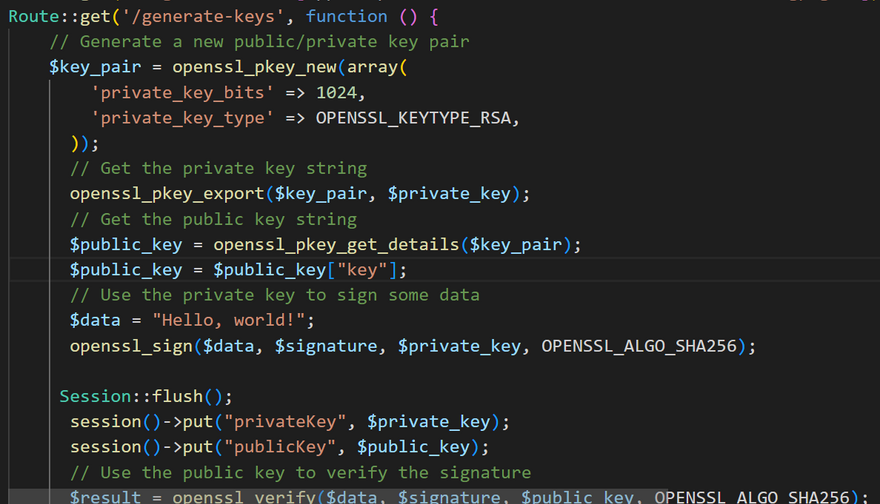

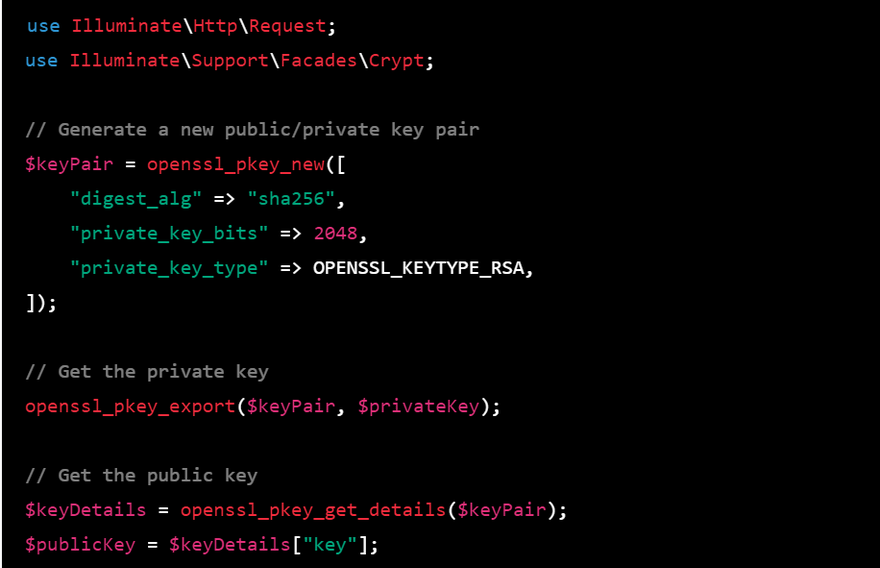

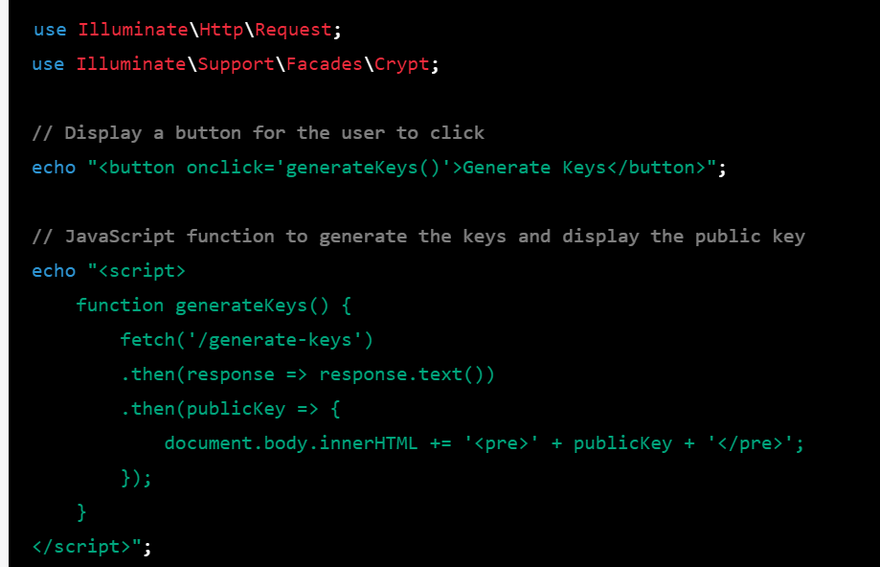
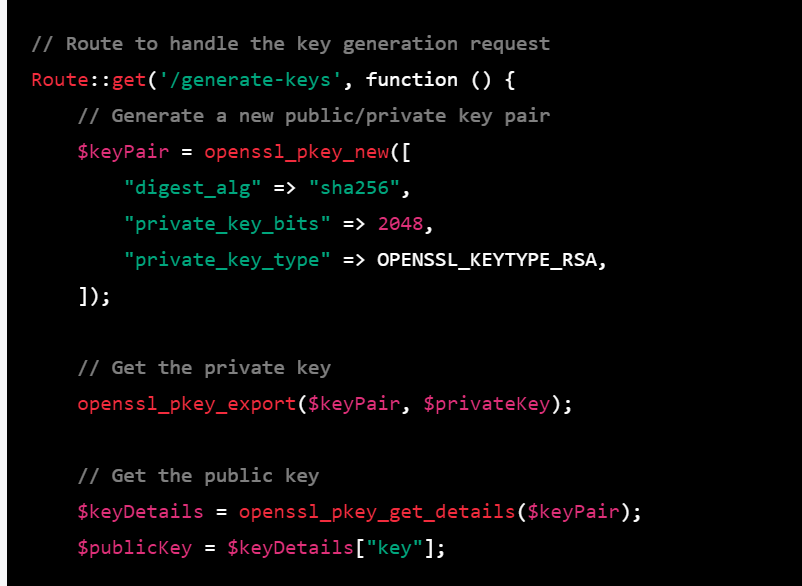
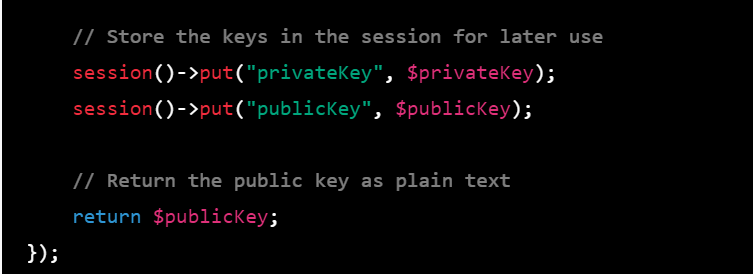
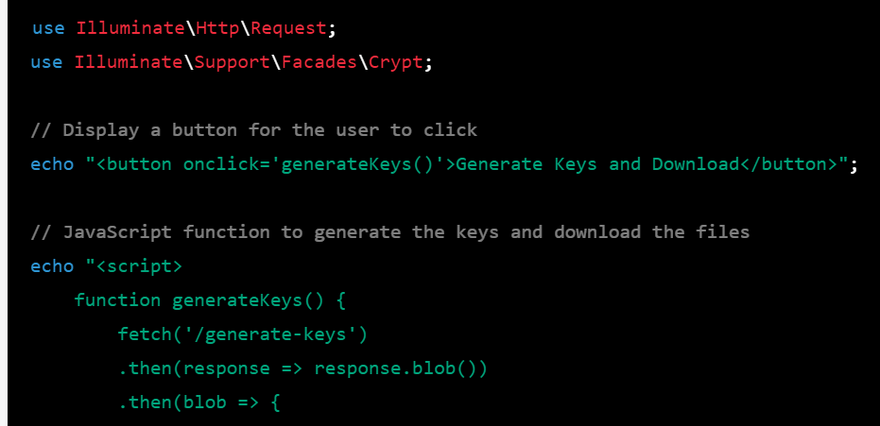
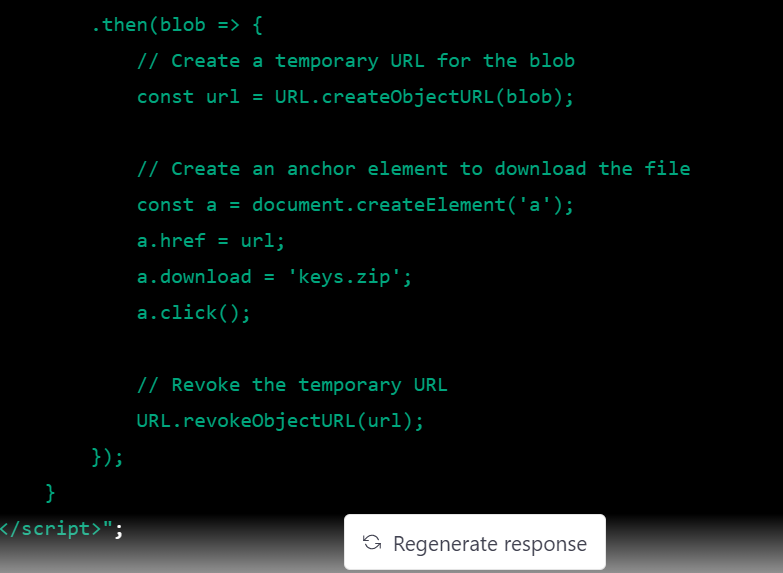
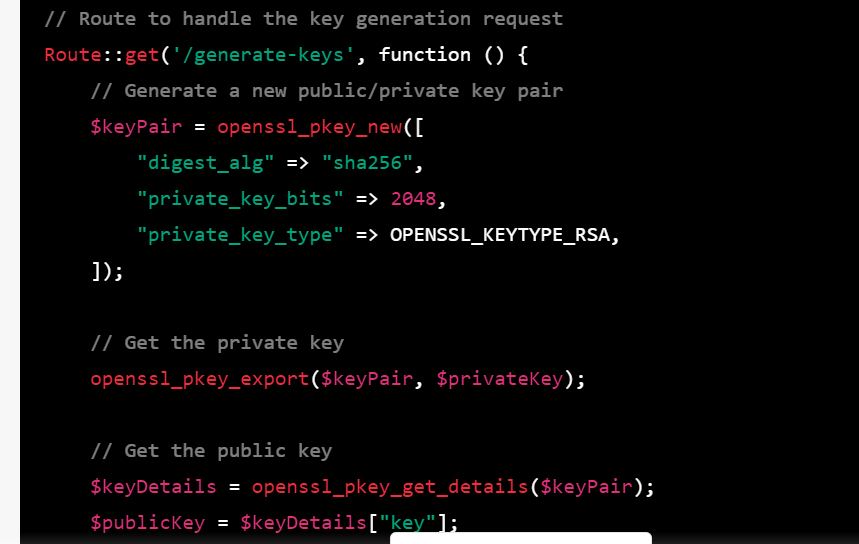

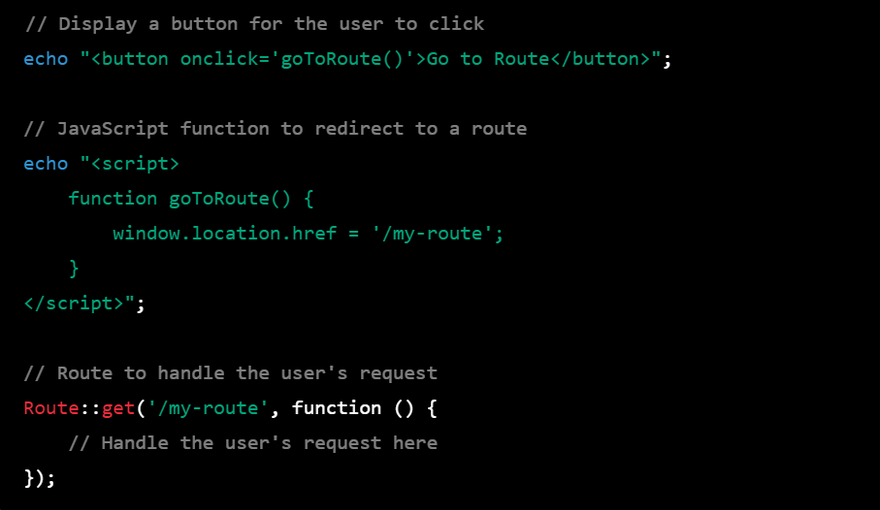

Top comments (0)